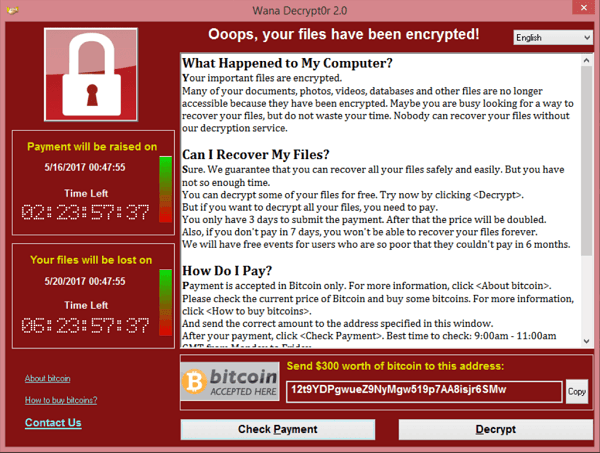
calendar_month04/10/2021
Table of Contents
Am I infected? Symptoms of ransomware infection
Most of the time, it is easy to tell if you are affected by a ransomware. The following symptoms are among the most common ones:
- Opening normal files ends in errors like "File Corrupt" or "Wrong file extension".
- A notification of infection is displayed with instructions on how to pay the ransom.
- The ransomware program or website displays a running down "countdown" that reports about the increase of the ransom or the final destruction of the data.
- A non-closable window of a ransomware program is present.
- Files like "HOW TO DECREYPT FILES.TXT" or "DECRYPT_INSTRUCTIONS.HTML" show up in almost all directories of your system.

Prevention
As is generally true in information security, "Defense in Depth" (=coordinated use of multiple security measures), it is also true in prevention against ransomware:
IT-Security Awarness:
understanding the dangers that lurk on the Internet makes it easier to protect against them. Take a proactive approach and train yourself and your staff about the dangers, thus raising awareness about ransomware.
Security Products:
Many anti-ransomware, anti-virus and other products are offered. None of these products are a 100% solution against Ransomware but using them in conjunction with other practices such as awareness, updates and backups are effective protection against Ransomware.
Whitelisting Software:
Whitelisting software defines in a configuration file which software can be installed and used on a system. This allows you to specify that only secure, verified, and signed software can be installed on a system, which is very effective against a ransomware infection.